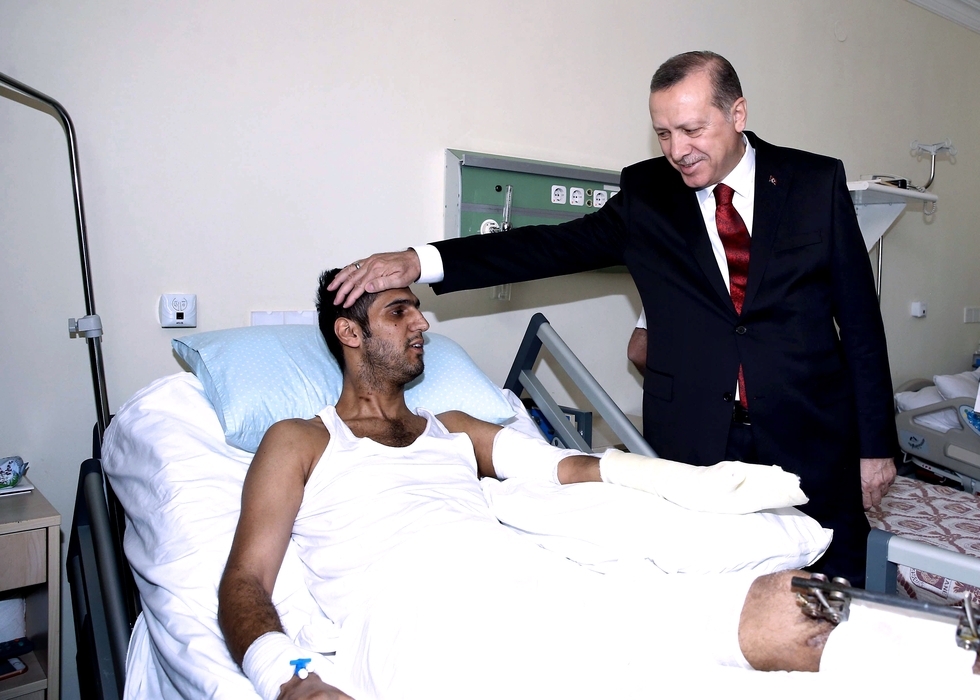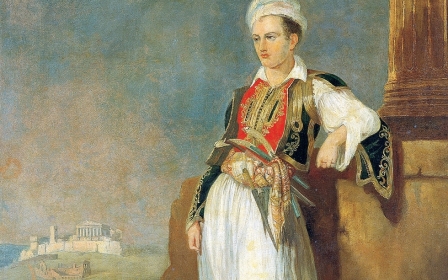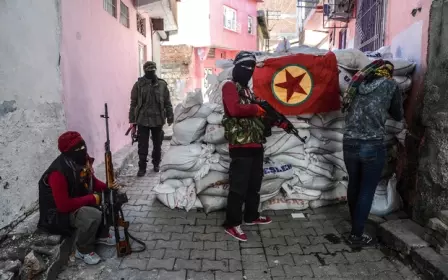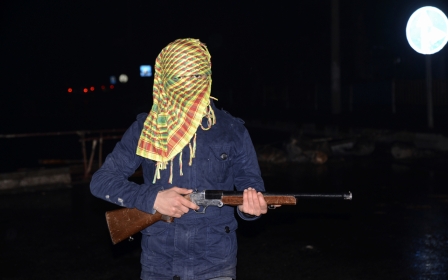Turkey's Western allies won't join its war on Kurdish militancy

Over the last three years, Turkey and its people have endured a series of major explosions, each of them triggering a downwards spiral into ever worse violence and political tension resembling multi-sided internal warfare.
Since the beginning of the year hundreds of people - soldiers, police, local civilians and terrorist militia members - have died in clashes in eastern Turkey. The daily death toll is depressingly high: two soldiers and a policeman died in the early hours of Friday morning alone in south eastern Turkey, eight others were killed in a road ambush there a day earlier.
These deaths stem from the breakdown last July of the two-year-old peace process and dialogue between the Turkish authorities and the Kurdish PKK (Kurdistan Workers Party). The breakdown followed an earlier bombing at Suruc close to the Syrian border carried out by unknown persons, possibly but not certainly Islamic State militants, and since then events have unfolded ever more bloodily until now explosions are taking place in the heart of metropolitan Turkey as well as the mainly Kurdish-speaking southeast.
But the explosion at traffic lights just 300 metres from the country’s parliament in Ankara during the rush hour on Wednesday evening, which killed 28 people, threatens an even worse twist - direct involvement by Turkey in the civil war in Syria, something which would probably bring its forces speedily into conflict with the Syrian regime and its Russian allies. In other words, this would be an international crisis of the first order, especially if NATO decided - as Turkey hopes it will - to act in solidarity with Ankara.
Turkey’s leaders want to go down this road because they claim that the bombing was the work of the Syrian Kurdish militia, the YPG (Peoples Protection Units), a group ideologically linked to the PKK in Turkey and believed to be supported by many Kurdish fighters from that country as well as Syria.
The YPG and its parent organisation, the Democratic Union Party (PYD) have proved the most militarily successful group in the fighting in Syria and northern Iraq over the last two years, driving back IS by working closely with air support from the United States. America and the anti-IS coalition struck at IS positions from the air, while the Kurds and some Arab allies in the Syria army moved forward on the ground.
This combination has created something utterly anathema to Ankara: a line of autonomous Kurdish enclaves along much of Syria’s border with Turkey. Currently they are poised to take over key positions in the 98km-wide Azaz to Jarabulus corridor, block off Turkey from its allies in the Syrian opposition, and link up with a further Kurdish enclave to the west at Afrin.
Turkey's hope of toppling President Bashar Assad and creating a Sunni-led new Syrian administration has long since vanished, though President Recep Tayyip Erdogan refuses to recognise this. As a result Ankara is currently simultaneously opposed to both the United States and the Russians over Syria: to the Americans for supporting the Syrian Kurds and refusing to condemn them as terrorists; to the Russians for intervening in Syria, bombing Syrian opposition targets, and apparently guaranteeing the survival of Assad and his administration.
Turkey and Russia are already deeply unfriendly politically because of the shooting down by Turkey of a Russian fighter jet close to the Syrian border on 24 November after a 17-second airspace violation.
Last week, when the Syrian Kurds began to threaten the town of Azaz and a nearby Syrian air base, Ankara felt compelled to act and on 13 February began heavy cross-border shelling of YPG positions, ignoring appeals to stop doing this by the United States. At the same time, enthusiastic talk began of a cross-border operation by the Turkish armed forces via the Azaz-Jarabulus corridor into Syria.
To outsiders, the risks of such an intervention look at the very least prohibitive, given Syrian and Russian power in the air and the experienced YPG fighters on the ground. Leaders in Ankara seem to have paused but not abandoned the idea of intervening.
To minimise the risk, Turkey would like to create a no-fly zone close to the border: something it has been pushing for ever since the Syria civil war began four years ago. There are suggestions that it may even be encouraging Syrian refugees not to cross into Turkey in order to create the pre-conditions on the ground for a no-fly zone.
Its case for intervention would become much stronger if Ankara could show that the YPG is not just a terrorist organisation, as it insists, but it is also actually attacking Turkey. The explosion in Ankara on Wednesday evening, according to both President Erdogan and Prime Minister Ahmet Davutoglu, was exactly such an attack. The suicide bomber was swiftly named as Salih Necar, a 23-year-old Syrian Kurd from Hasaka: like the recent suicide bomber in Istanbul, he had entered Turkey and even been finger-printed.
Turkey’s opposition has condemned what they see as a second major failure of the security services to forestall a bomb attack in just four months since an earlier one, now known to be the work of local IS followers, in which 107 people died also in the heart of the city.
The key question is whether or not Salih Necar carried out the attack on behalf of the YPG - which is not known to have done anything of this sort in Turkey before?
Although plenty of Syrian Kurds fight for other movements including IS, Turkey’s leaders are adamant that the bombing was a YPG operation.
The PYD and YPG deny a connection. A United States spokesman, as of Thursday at least, declined to confirm the link, despite the fact that the Turkish government immediately briefed foreign ambassadors with its evidence to support the claim. If there were to be a ground operation in Syria, Turkey would like to see its NATO allies at its side when it goes in.
NATO support for Turkey currently looks extremely unlikely because of the risk that it could precipitate a global conflict. Instead, Turkey on Friday morning began shelling Afrin, the western-most Syrian Kurdish enclave, from its coastal province of Hatay, while its domestic conflicts continue to simmer painfully.
- David Barchard has worked in Turkey as a journalist, consultant, and university teacher. He writes regularly on Turkish society, politics, and history, and is currently finishing a book on the Ottoman Empire in the 19th century.
The views expressed in this article belong to the author and do not necessarily reflect the editorial policy of Middle East Eye.
Photo: A handout picture taken and released by the shows Turkish President Recep Tayyip Erdogan visiting a victim of Ankara terror attack at the Gulhane Military Medical Academy (GATA) in Ankara on 18 February, 2016 (AFP/Turkish Prime Minister press office).
New MEE newsletter: Jerusalem Dispatch
Sign up to get the latest insights and analysis on Israel-Palestine, alongside Turkey Unpacked and other MEE newsletters
Middle East Eye delivers independent and unrivalled coverage and analysis of the Middle East, North Africa and beyond. To learn more about republishing this content and the associated fees, please fill out this form. More about MEE can be found here.





